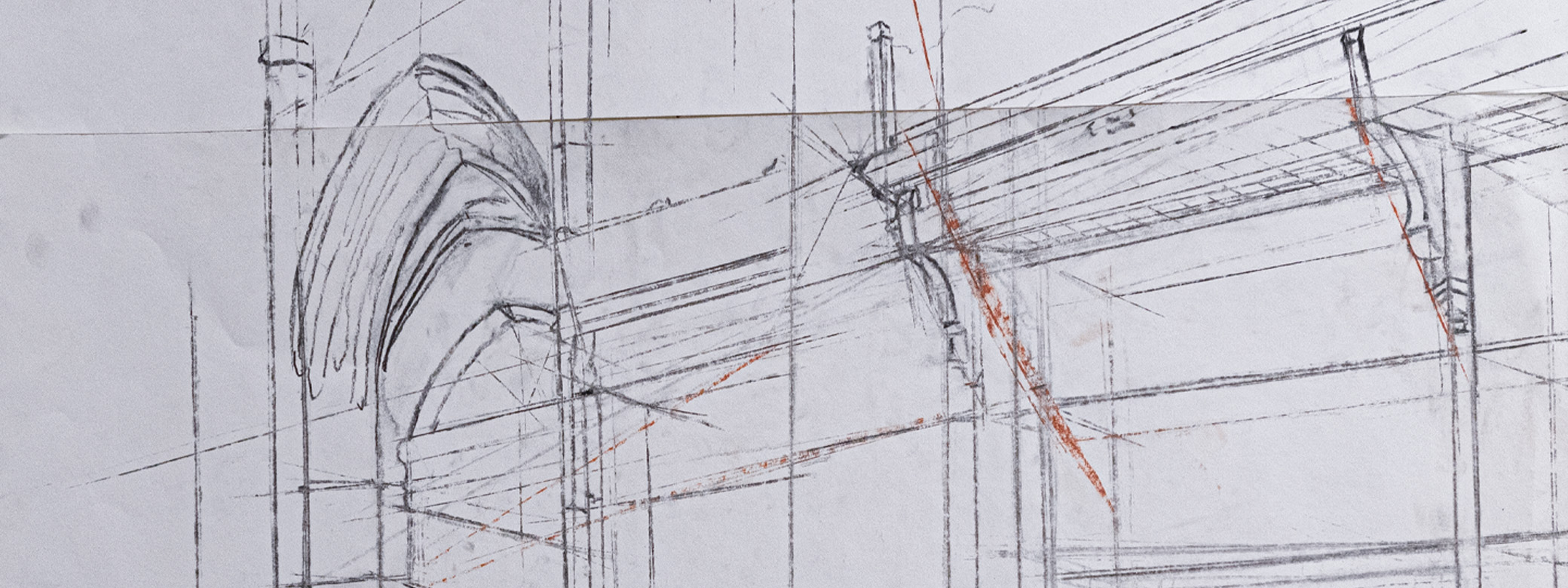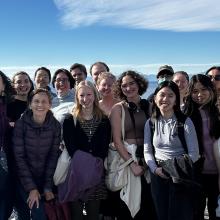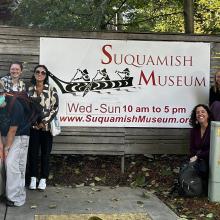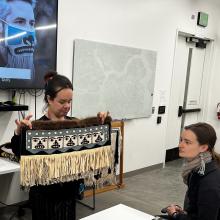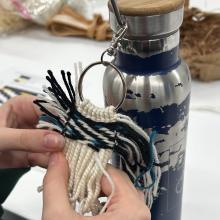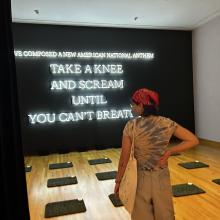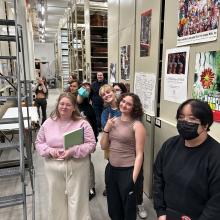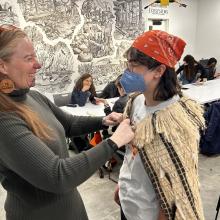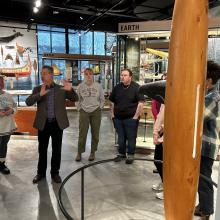This article was written by Mariah Ribeiro, graduate student in Art History and student in ARTH 533.
During Autumn quarter 2023, students in Associate Professor Kathryn Bunn-Marcuse’s Art History class examined the relationship between Museums and Indigenous communities through visits to local museums and expert guest speakers. The class reimagined the traditional seminar class format with Dr. Bunn-Marcuse organizing three on-site visits to the Suquamish Museum, Seattle Art Museum, and the National Nordic Museum as well as many guest lectures. By attending class at the Burke Museum, the format allowed students to survey varying curatorial practices, with some students having their first hands-on experience with art objects and going behind the scenes at the museum. Additionally, the students had a weaving workshop with Tlingit weaver Lily Hope, were visited by Maori weaver and UW Fulbright scholar Hinekura Smith, dug deeply into the nuances of NAGPRA with the Burke's repatriation manager Justice McNeeley, and toured the Burke’s collections with professors Holly Barker and Chadwick Allen. The dynamic and collaborative nature of the class format were rooted in one of the primary educational goals of the course, teaching students Indigenous methodologies that aim to decolonize, or at least transform, museum practice and art history.
As students learned in class, the work of decolonization through collaboration and Indigenous methodologies is paramount, seeing that museums have the capacity to shape the public’s understanding of history and culture. The hyperlocal focus of the course allowed students to better understand the colonial histories of the Pacific Northwest, Seattle, and the legacy of museums like the Burke while also giving them the opportunity to meet some of the local scholars, curators, artists, and educators who are making important interventions in museum practices. While much of the course focused on museums’ relationships with First Nation communities in the U.S. and Canada, this foundation was expanded out to global Indigeneities and networks of collaborations through the visits of Dr. Barker, Dr. Allen, and Dr. Smith to the class. The course transformed how many of the student relate to museums. As one student noted in their feedback on the class,
“This class has made me entirely rethink my relationship to museums. ... I never thought I'd find myself questioning whether museums should even exist. After taking this class, I've realized that I do want to be part of that conversation.”
Another noted,
“This class is probably the most impactful class I've taken at UW: it has me fundamentally challenging everything I have been taught and think to be true. It has contributed to the existential I am going through in a good way as I am reevaluating and questioning everything impacted by race and ethnicity. Regardless of if I take a future art history class, this has expanded my thinking.”
One of the highlights of the quarter for many was a visit to the Suquamish Museum, which required the class to journey across the Puget Sound on the ferry together one sunny, October day. As Professor Bunn-Marcuse noted of the visit in an Instagram post, “It was great to see 21 out of 24 students show up despite the trip adding 3 hours to their normal class. Some students had never been on a ferry, none had been to the museum before.” For all of the substance and challenges that the class presented its students, it was never lacking for fun, connection, and new art experiences.
